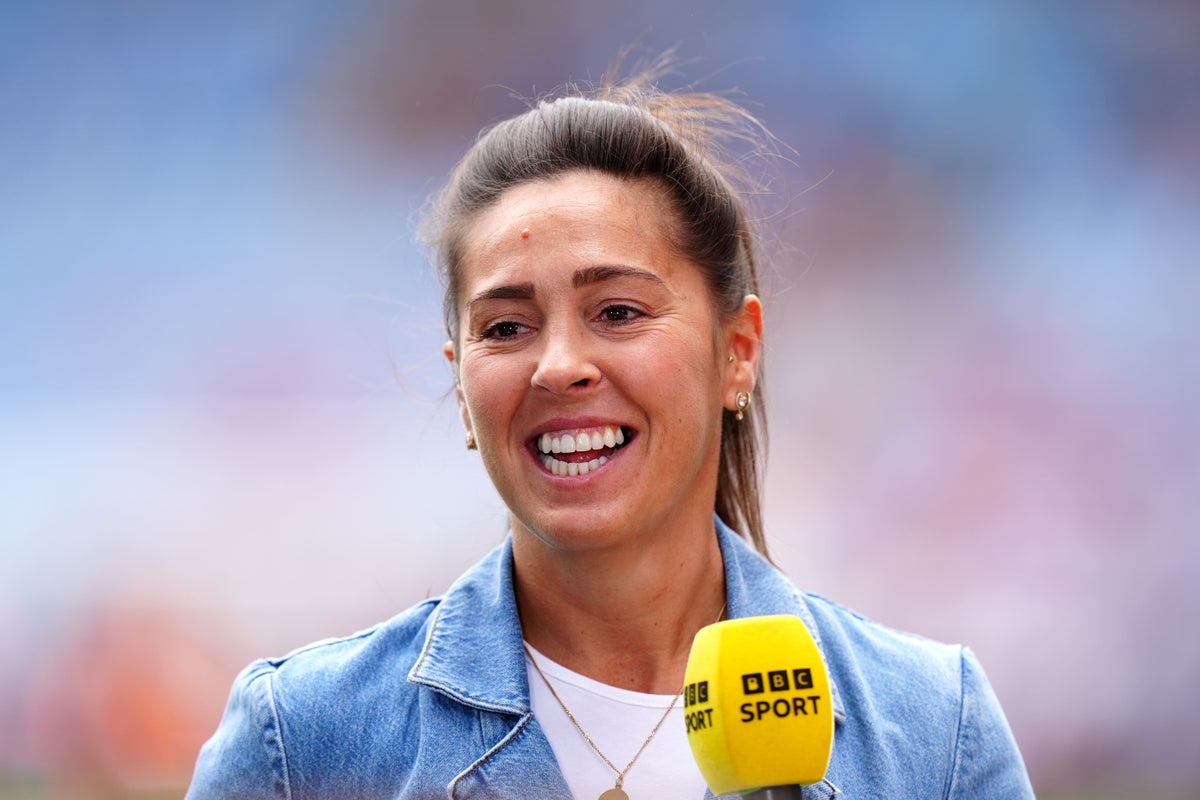
Former Lioness and football pundit Fara Williams is widely regarded as one of the greatest midfielders of her generation and has revealed that while she never doubted her abilities on the pitch, she did experience periods of low confidence regarding her body image.
“I was always confident in my own ability when it came to football. But I think with image, I always felt that it was a competition and that you had to look a certain way,” reflected the 41-year-old pundit. “I was never confident that I looked like everybody else. I was never confident that I had the six-pack that you were ‘supposed’ to have, for example.”
Ahead of the UEFA Women’s Euros, Williams spoke openly about her experiences with body image and food during a Lidl GB panel held on June 25 at London’s Emirates Stadium. Alongside presenter Kelly Cates, nutritionist Dr Hazel Wallace and footballer/content creator Freda Ayisi, Williams discussed the knowledge gap in female sports nutrition.
During this event, the former Lioness recalled some difficult moments, such as the shame she felt when her BMI and body fat statistics were displayed and compared to those of her teammates.
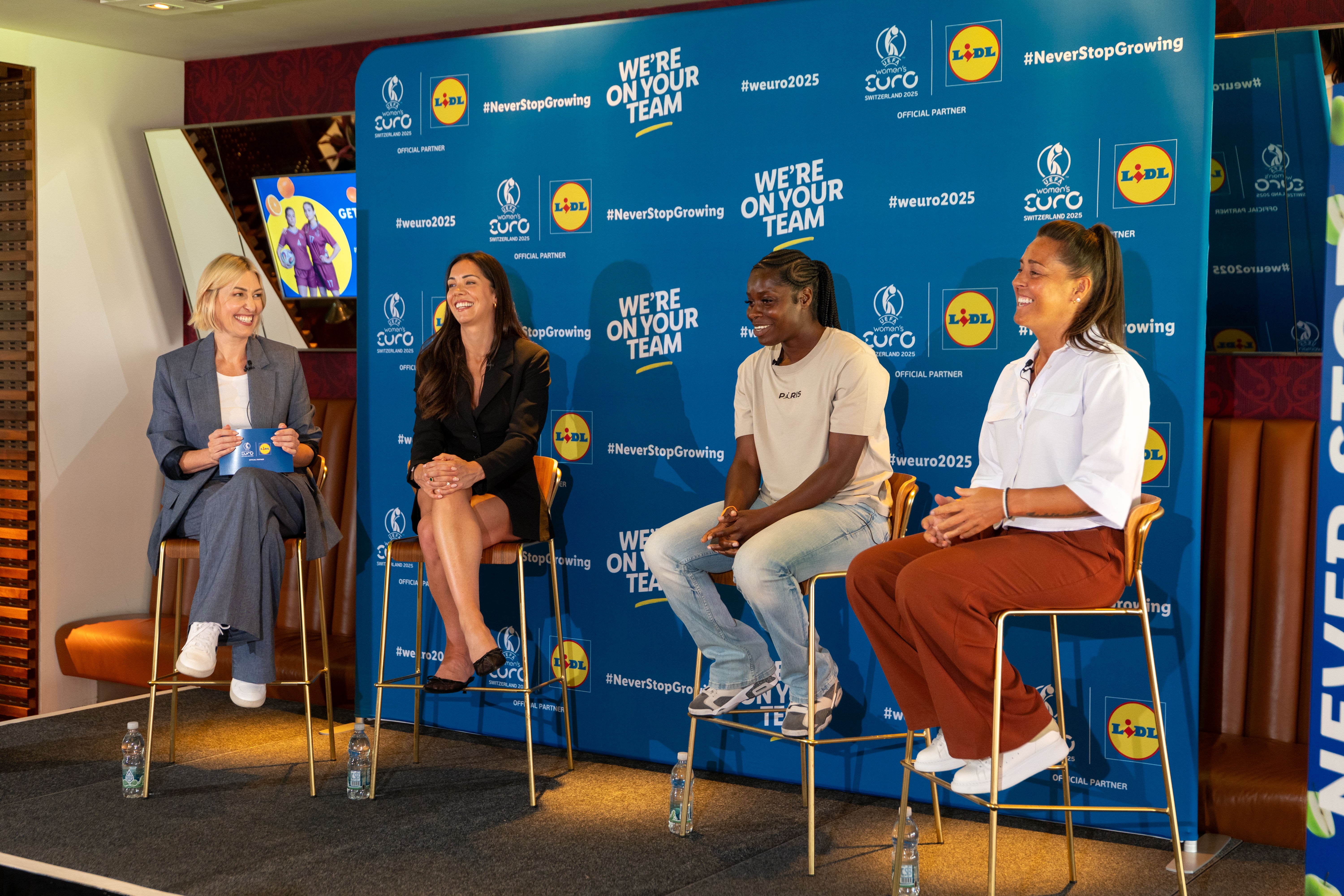
“I don’t think they were trying to shame us, but I felt ashamed sometimes, depending on where I sat within that,” revealed Williams, who retired from professional football in 2021 after amassing 172 caps for the Lionesses during her career. “You feel a little bit of embarrassment that everybody else can see that you weigh a little bit heavier.
“Fasting was also a big part of the game for a period of time. I was in the ‘fat club’, but it wasn’t called fat club they would say ‘oh are you coming to the ‘fasting session’ this morning?’, where you’d go on a bike or a walk in the morning.”
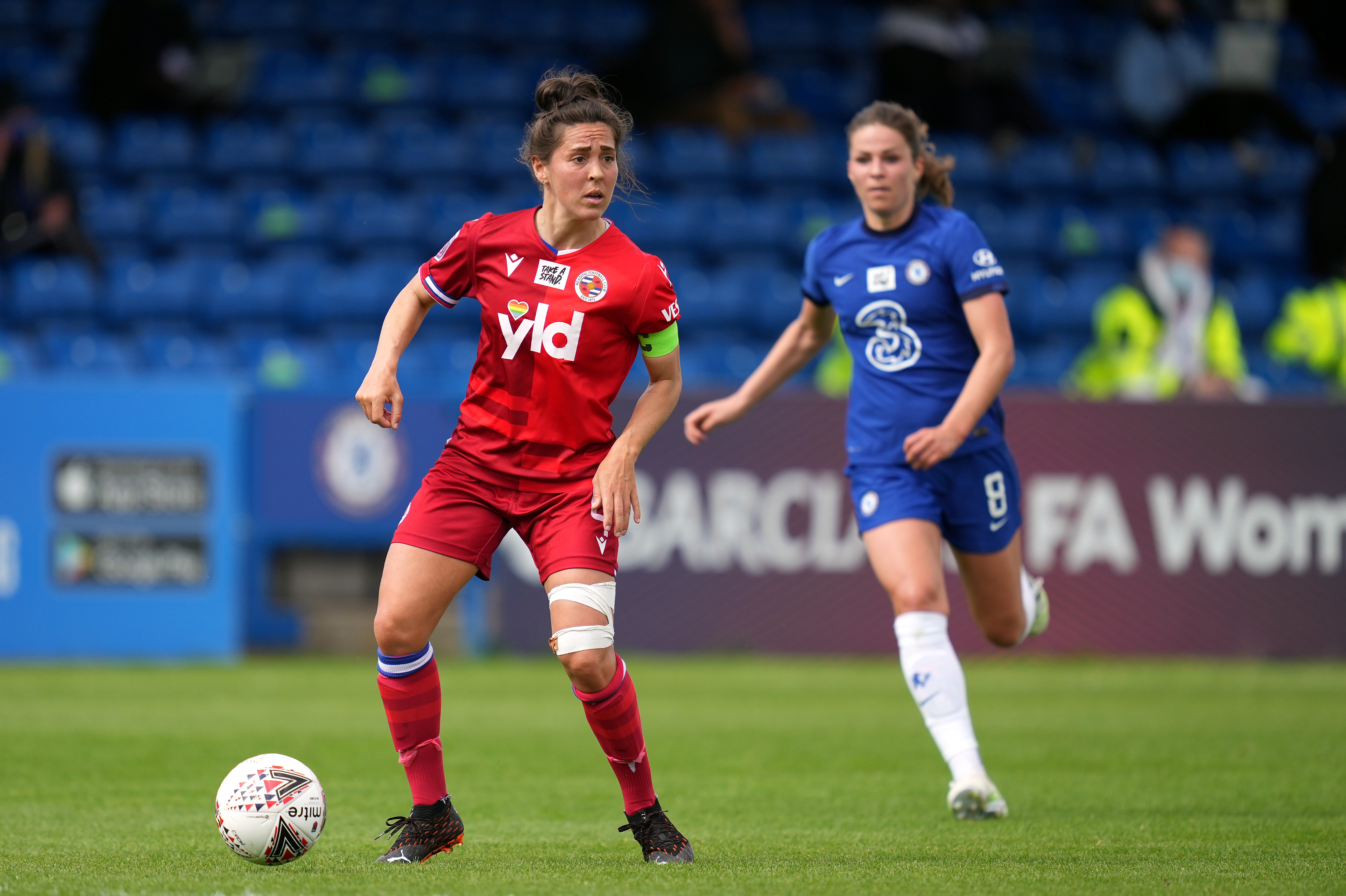
This emphasis on getting the bigger players to lose weight, she observed, often meant players who were underfuelling for games were often overlooked.
“When you were a player who was a little bit weighty, it was really easy for a nutritionist or coach to tell you that you need to maybe diet a little bit or whatever,” said Williams. “But, I noticed that a lot of the athletes were underfuelling, and a lot of that came from the whole carbs being the devil idea, and wrong information out there led to harmful effects.
“Some of the players had underfuelled, overtrained and had problems with their cycle where they didn’t have a period because of the training they were doing. But then that was never a conversation and they weren’t seen as a people who also needed help.”
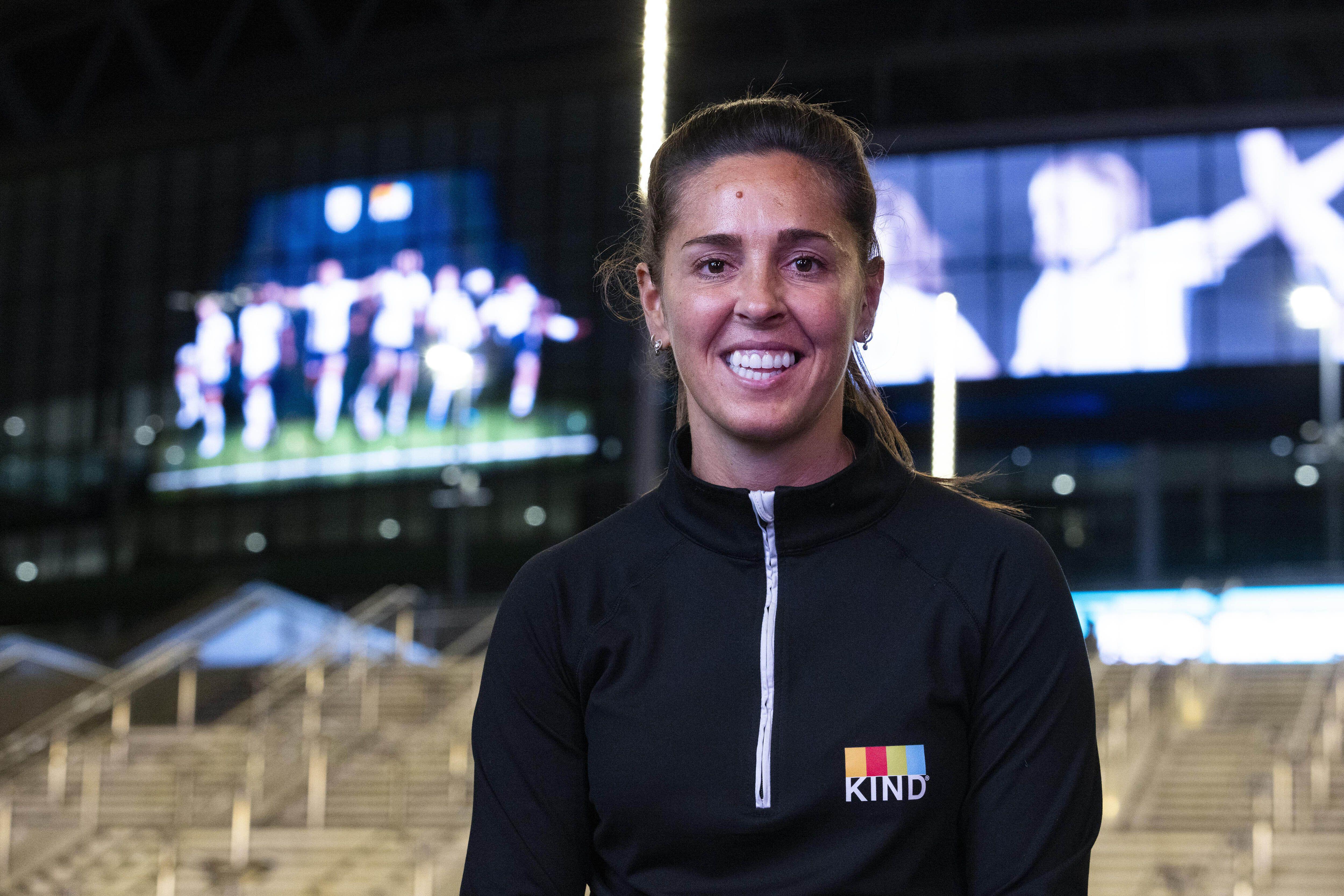
New research commissioned by Lidl, based on a online survey of 2,006 UK adults conducted in June, reflects this and found that nearly 80% of the women surveyed said they had never received tailored advice on how to properly fuel their bodies for exercise.
“In my time it was people coming over and kind of introducing you into food and kind of putting you into that head space of how you calculate X amount of grams of whatever. But in terms of knowing if that’s right for my body weight, type, being a female, hormones etc we didn’t have any information to kind of marry up the two together,” said the football pundit. “But I have been in contact with some players now and they have more nutritionists on board now.
“Whether they’re individualised, I’m not sure, but there’s certainly some kind of guidance to their nutrition, which is in a better place than it was that I left the game. I think it certainly would have enhanced my playing career, certainly in games in terms of lasting that 90 minutes and feeling fuelled for a longer period.”
Lidl’s new research also revealed that nearly one in three (31%) of the women surveyed said they skipped sport during their menstrual cycle. At the panel event, Williams spoke about how her own menstrual cycle impacted her performance on the field.
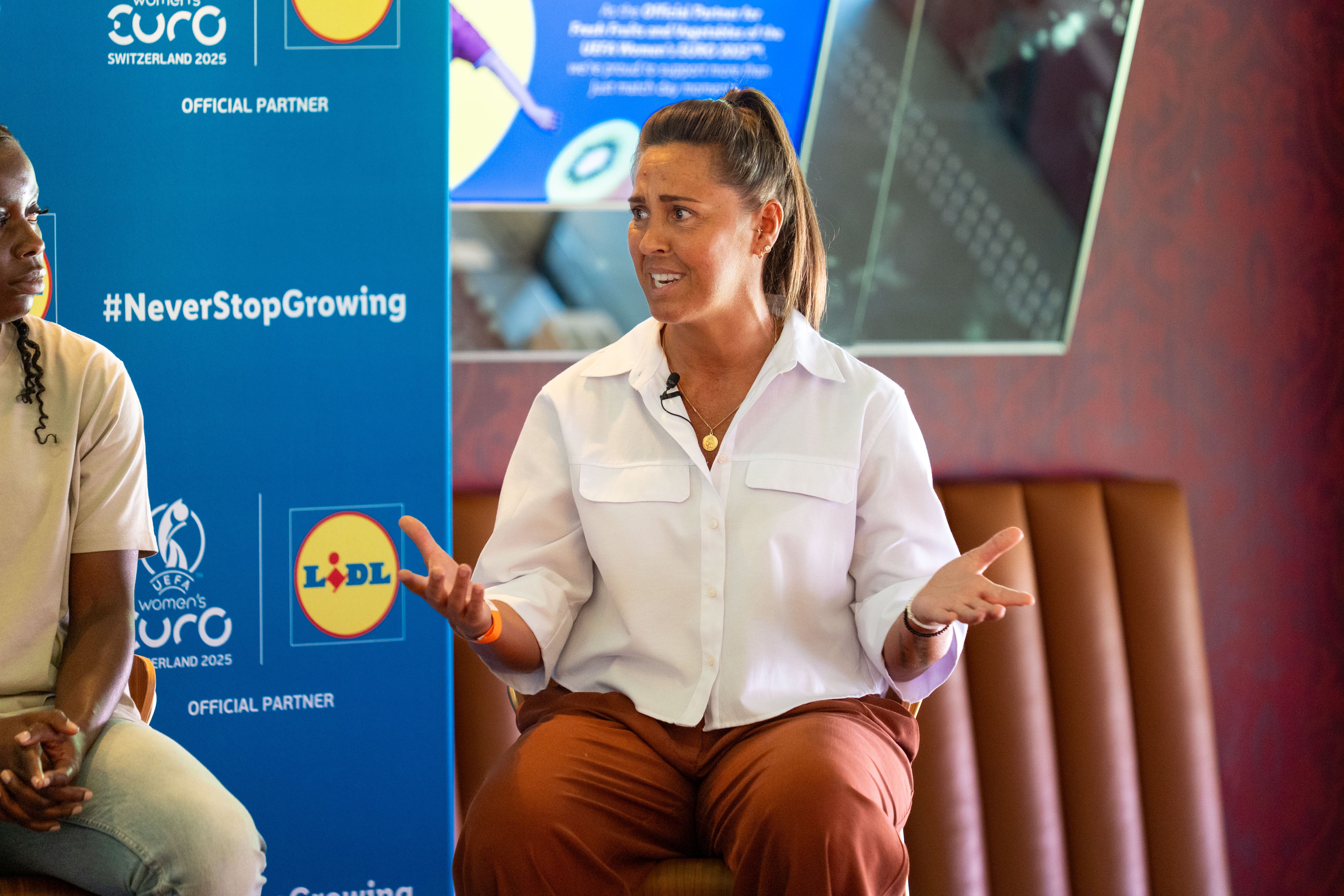
“I was never a female that got symptoms like period pains etc, but I was someone who would have heavy cycles,” said Williams. “Yes you feel tired, yes you feel bloated, but it was more of a case of paranoia going into the game with white shorts, for example, playing in the semifinal of an FA Cup and I’m on my period.
“My focus wasn’t to win the semifinal of the FA Cup and to get to Wembley, it was more on the paranoia if I bled and all of the kind of things that you’d be embarrassed about. To have those thoughts in your head and the shame of it happening in front of how ever many people is difficult. So it was a psychological thing.
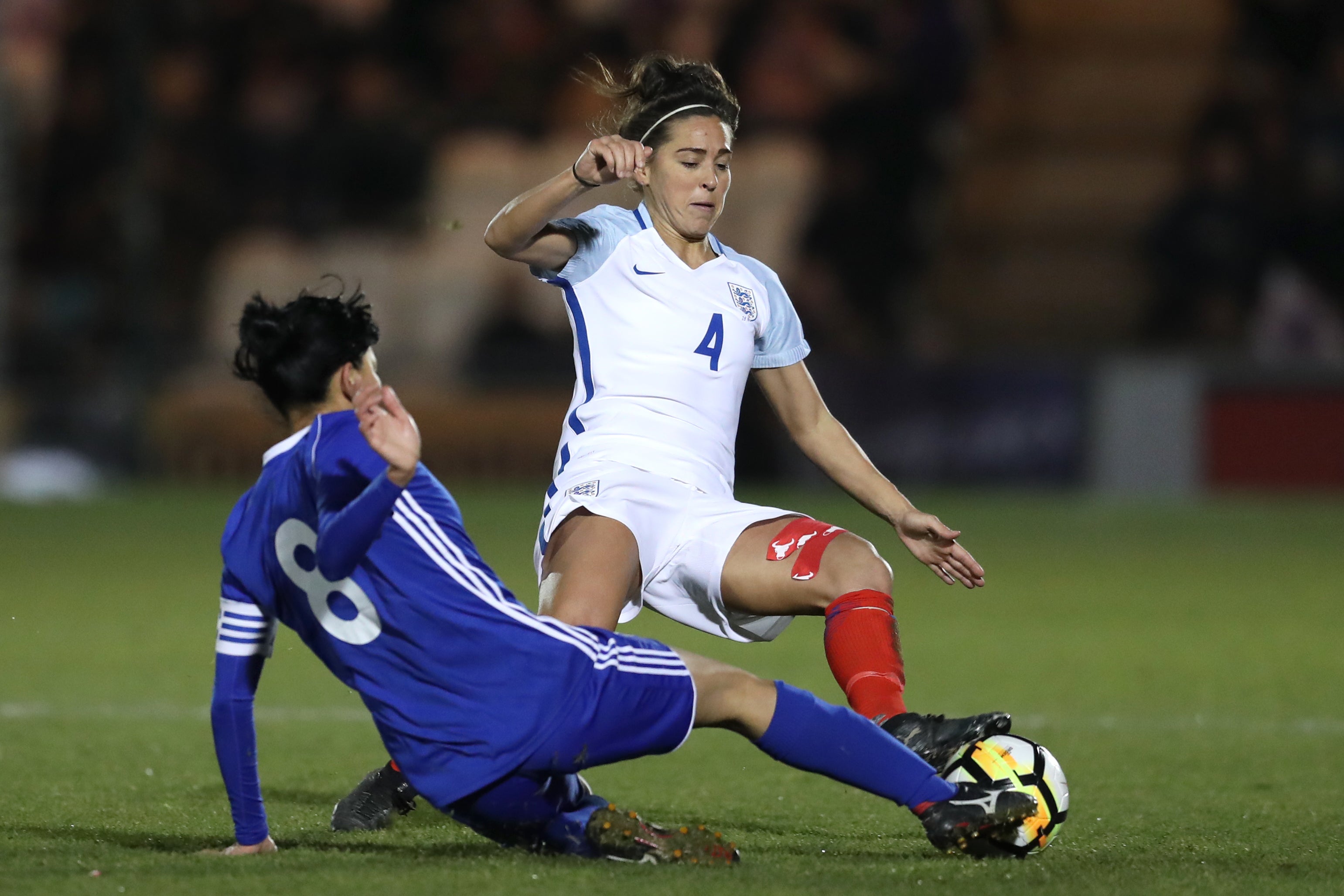
“As a female you recognise those small changes in your body and automatically think that everybody else can too. So, maybe even psychologists within the game could help women around the menstrual cycle and help get players to a level where they feel quite comfortable on their cycle whilst playing.”
In today’s social media-driven world, young girls and women are constantly flooded with messages about their menstrual cycles, nutrition, health and appearance, but Williams recommends taking a step back from social media to discover what works best for you.
“Don’t compete with anybody. Don’t look at other people and feel like you need to look or be like them,” advised Williams. “Accept who you are, work with what you have, and kind of go on that journey by yourself. If you are into health and nutrition, find what works for you and that is often through trial and error.”
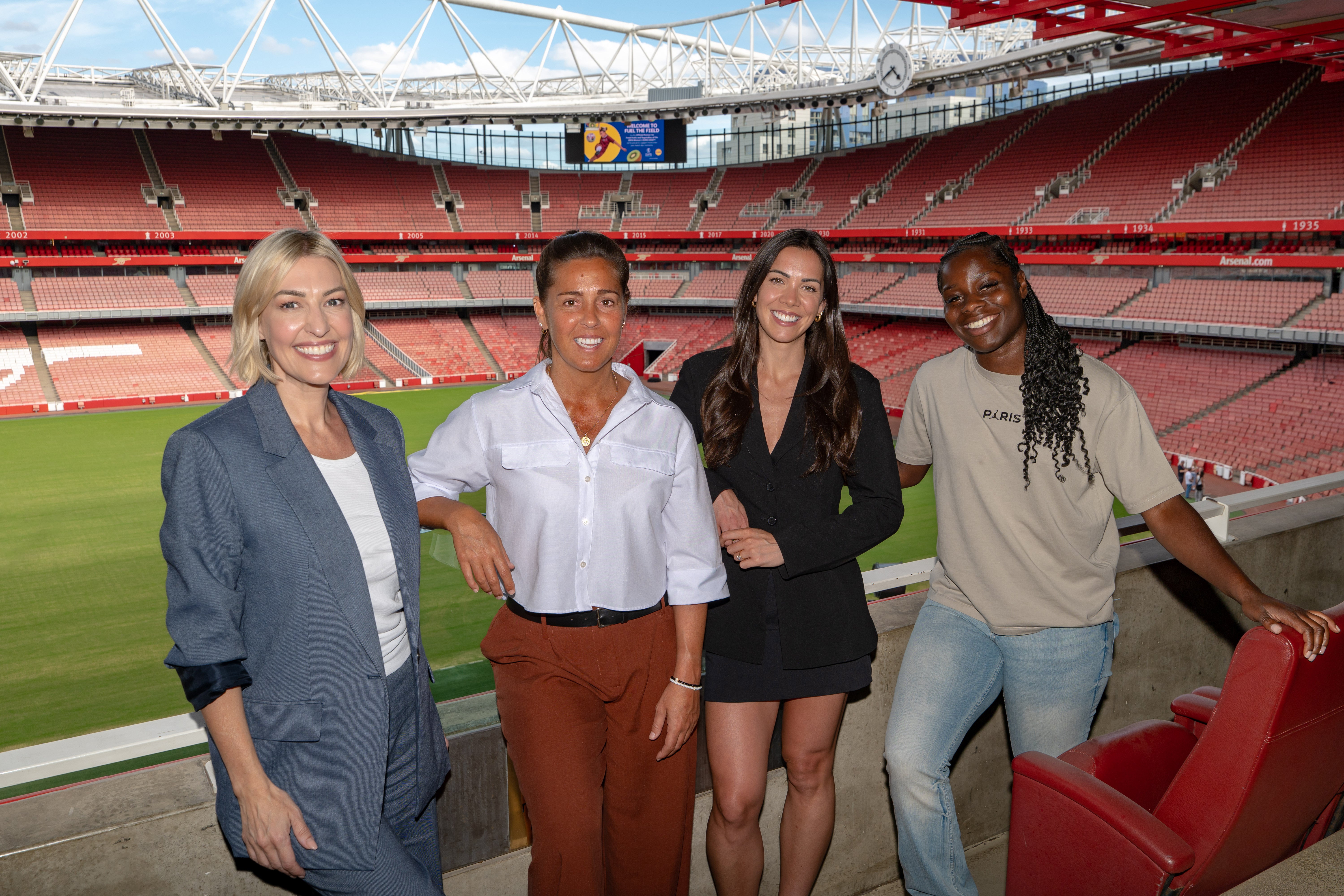
Fara Williams was speaking at a panel discussion organised by Lidl GB, as part of its sponsorship of the UEFA Women’s Euro 2025, about the importance of addressing the knowledge gap in female sports nutrition.







